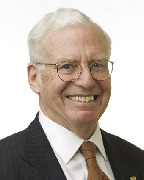In one week we had good news at G 20, news on the Mark-to-Market rules from Federal Accounting Standards Board (FASB), news from the Federal Reserve Board (FED) and U.S. Treasury on Public-Private Investment Program (PPIP) and Term Asset-Backed Securities Loan Facility (TALF) program, and some varied up-ticks in the economy and stock market; and the buzz was particularly hopeful.
Mark Zandi of Moody's Economy.com, speaking at The Counselors mid-year meeting in N.Y., reiterated his expectations for improvement in 2009 and recovery trends in 2010.
Karl Case, founder of the Case-Shiller index, on WBUR (National Public Radio) after speaking locally at the Mass. Board of Real Estate Appraisers (MBREA) March 24th, commented that the markets feel a little better than this time last year, and anecdotal evidence from his audiences support his feelings. Of course current job data on unemployment claims and employment declines prevent much more than hope at this time.
The Counselors at the midyear meeting discussed recent history and current capital market and transaction activity. Most speakers focused on problems in various traditional capital source sectors on portfolio and regulatory activity and offered little hope for improvement. However, several sources report poised non-traditional sources, such as hedge funds, private equity firms, and newly capitalized funds from mutual fund sponsors, players ready to enter the markets and participate in PPIP and private market activity. The panels documented and confirmed what most industry professionals assumed. The panels on retail and hospitality sectors provided some hints for opportunists as well as overwhelmingly bad performance data on most, but not all, geographic, quality and size submarkets.
At the N.Y. Counselors meeting, Zandi continued his dialogue with the data crunchers. He still is looking at up-ticks in 2009, with more pronounced and consistent recovery trends prevailing in 2010. Of course, the future will depend on traction in the capital markets and employment trends improving soon in 2009. He still appears to hope that those things will happen. He reminded us that deflation in the short term and inflation in the long term are distinct possibilities. When asked what regions would begin the recovery, he said metropolitan areas with strong technology, healthcare, higher education and government employment sectors would be the fastest and the first to recover, not necessarily geographic regions.
The reconciliations that prevailed at the G 20 meeting in London provided a boost for the hopeful. At least the global participants are engaged and alarmed enough to work in concert on stimulus and regulatory initiatives. Differences in methodology and relativity are still to be resolved. The participants agreed to an International Monetary Fund (IMF) stimulus and bailout fund of $1.3 trillion and agreed to continue meeting on regulatory and stimulus issues.
More interesting will be the reconciliation or the collision of the revision of Mark-to-Market rules, the activity under PPIP and TALF, and the stress-testers in the banking sectors. Because all three elements have been anticipated for some time and involve many of the same parties, there is much to be hopeful about here, even with the logical confluence of conflicting forces. The hopeful will anticipate an orderly and timely reconciliation even here.
David Kirk, CRE, MAI, FRICS is principal and founder of Kirk & Company, Real Estate Counselors of Boston, Mass.
Tags:








